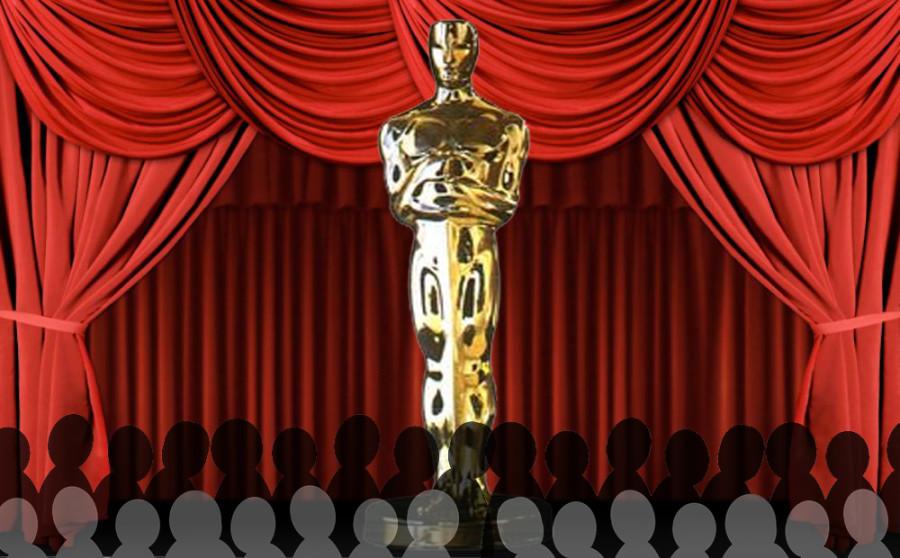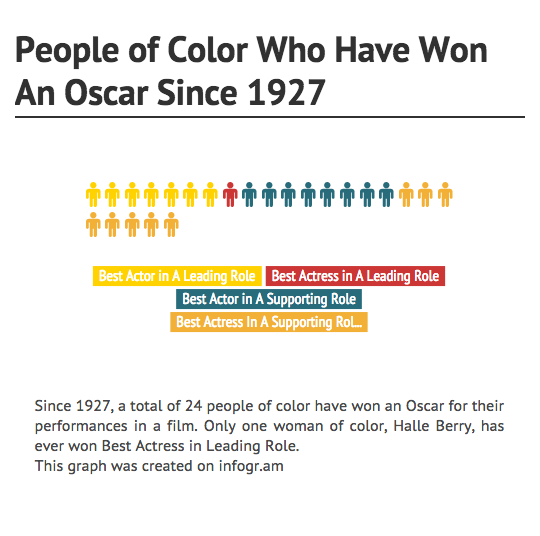How the Oscars got it wrong
Jan 23, 2015
This is the first year that I will not be watching the Oscars.
On Jan. 15, actor Chris Pine and the Academy’s President, Cheryl Boone, announced the Academy Awards nominations.
After hearing the nominations, I was upset for many reasons. First of all, The Lego Movie was not nominated for Best Animated Feature, while Big Hero 6, How to Train Your Dragon 2, The Boxtrolls, Song of the Sea, and The Tale of the Princess Kaguya were. Second of all, Ellen Degeneres will not be coming back to host this year.
But overall, the thing that shocked me the most was the fact that this is the least diverse Oscars that I have ever seen.
According to Oscars.org, over 6,000 active members of the Academy vote for films in a wide range of categories. A study by the Los Angeles Times showed that 93 percent of the voters are white and 73 percent are male. It shouldn’t have been such a surprise to me when I realized that all the nominees for Best Actor and Actress in a Leading Role or Supporting Role are white, and not one woman was placed in the category of Best Director.
I won’t lie, I enjoyed watching many of the actors, actresses, and movies that are nominated, but at the same time, there are people that deserve a nomination that the Academy missed.
For example, David Oyelowo, actor, could have easily been nominated after his performance in Selma. Scott Foundas, Chief Film Critic of Variety described Oyelowo’s performance as a “graceful, majestic lead performance.”
Last year, there were plenty of people of color nominated for an Oscar. There was actress Lupita Nyong’o, who was nominated and won Best Supporting Actress for 12 Years a Slave. Chiwetel Ejiofor was nominated for Best Actor for 12 Years a Slave and Barkhad Abdi, who was nominated for Best Supporting Actor for the film Captain Phillips.
Another obvious snub was Ava DuVernay, the director of Selma. Selma scored a 99% with the critics and 88% with the public on RottenTomatoes.com. If DuVernay had been nominated, she would have been the only woman and African-American in the category for Best Director.
And though the Best Director nominees last year were all male, at least Alfonso Cuarón, a Latino, won the Oscar for Gravity.
It isn’t just in the movies that I feel that I’m not being represented as a person of minority. In school I’m starting to feel as if I’m hearing the same stories over and over again. I took Perspectives in American Literature as a sophomore, and I vaguely remember reading a book with a minority as a protagonist.
There was The House On Mango Street, Their Eyes Were Watching God, and the play A Raisin In the Sun. I could never choose which one was the best because for once when I read, I was able to relate to every play because there was finally a person of color being represented.
To me, the Oscars controversy isn’t a ‘black person’s problem’ but rather a diversity problem. We’ve come too far as a society to not have one person of every race and gender be represented in a award show, or one book per race being taught in English.
So again, I will not be watching the Oscars because there is no reason for me to. If there’s another record breaking Tweet, an impromptu pizza delivery, or a celebrity tripping up the stairs to claim their Oscar, there is always YouTube.



John
Mar 5, 2015 at 12:35 pm
Well, if there were “plenty” of people of color nominated last year, then we know that the Academy awards are relatively racially unbiased. Furthermore, Birdman was directed by Alejandro González Iñárritu, a Latino, as well as receiving 5% higher (93%) on Rotten Tomatoes and .4 points higher on IMDB, so one could argue it was a better film. Ultimately, there is no affirmative action in the Oscars, because it tries to measure who was the best that year. There really is no reason to not watch something interesting just because your race, gender, etc. are not represented.